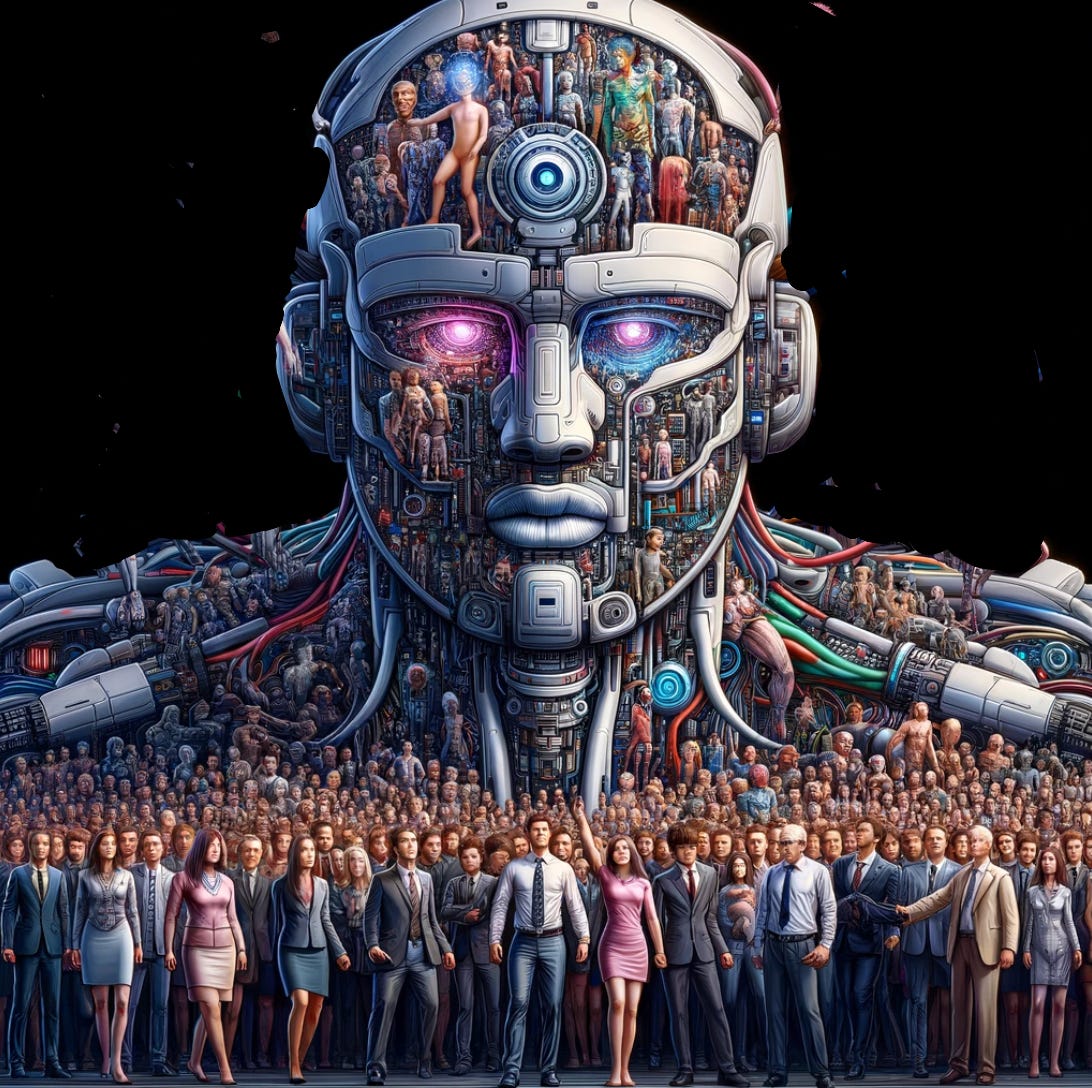Corrupt Liberal Democracies or "Infinitely Stable Dictatorships?"
Understanding what's at stake
What’s emerging for me is, I find, a new political perspective that helps me make sense of this particular civilizational moment. In what follows, I will express, more completely, my evolving thought process. And then, of course, I am happy if people want to disagree and poke holes in my ideas in the comments.
Let me give you the basic gist: We find ourselves in a deepening existential conflict between totalitarian, despotic societies (Russia, China, Iran, and so on) and liberal democracies (America, Europe, Mexico, Australia, etc). While liberal societies are flawed, corrupt, and turbulent, despotic societies are dreadful and stagnant. They rigorously repress human rights, freedom of speech, and even freedom of thought.
We confront great dangers right now. Obviously, one massive danger is accelerating warming and other aspects of the ecological crisis. Current estimates point to a 3 degrees Celsius warmer world by 2100. The rapid development of AI poses a few very deep threats, such as armadas of AI-controlled killer drones. I don’t think Ilya Sutskever (the Chief Scientist of OpenAI who forced out Sam Altman as CEO), is exaggerating when he says:
“AI has the potential to create infinitely stable dictatorships.”
This statement gives voice to my greatest fear. We have entered a different situation, with new existential threats than anything we have known before. This situation calls for a different kind of analysis — and resistance — than what we find in the traditional (Chomsky-inspired) Left, as well as the new “woke” (Judith Butler-inspired, identity-focused) Left.
For reasons, I will explore, I believe we in the Liberal, progressive camp need to pull ourselves together, overcome the deepening fragmentation, and quickly orient around a new project to save what is essentially good and meaningful about the liberal humanist tradition before it is too late, while we also continue to seek new ideas and apply more regenerative models.
From World War Two until the last decade or two (2008 was a hallmark), the US was the world’s dominant power. We inherited the mantle of Europe’s global colonialist project from the defeated countries of Europe. As the imperial power, America acted terribly in many circumstances. Pax Americana backed a number of horrendous dictators, unleashed devastating wars, and used financial instruments such as debt to exploit the resources of the developing world. Traditional Leftist fury at the behavior of America and its imperialist allies — furthering the project of colonization — is justified. It is terrible we built the modern, industrial and now post-industrial world on the bent backs of the people of the developing world while unleashing massive environmental harm.

But I don’t believe any imperial power would have acted better. In fact, I imagine if a doctrinaire Communist, Islamic, or totalitarian regime had attained the same level of overwhelming dominance by dint of historical luck, our world today would be a far more horrible place. As a global police force, America — with 800 military bases splayed across the planet — arguably controlled global chaos and reduced the aggregate amount of war and misery, by a significant extent. As America’s authority wanes, regional conflicts are starting up again in many places.
When they adopt the Anglo-European model and become liberal democracies, nations lose the habit of making war on their neighbors, gaining more via economic integration. Countries across Europe, for example, are no longer at each other’s throats. But the belief that the entire world would inevitably move toward the liberal democratic model — famously proposed by Frances Fukuyama — has turned out to be false.
Let’s consider the Liberal ideal. The maverick historian and cultural theorist John Gray defines four basic characteristics of liberalism as an ideology. These are individualism, egalitarianism, meliorism, and universalism:
Keep reading with a 7-day free trial
Subscribe to Liminal News With Daniel Pinchbeck to keep reading this post and get 7 days of free access to the full post archives.





